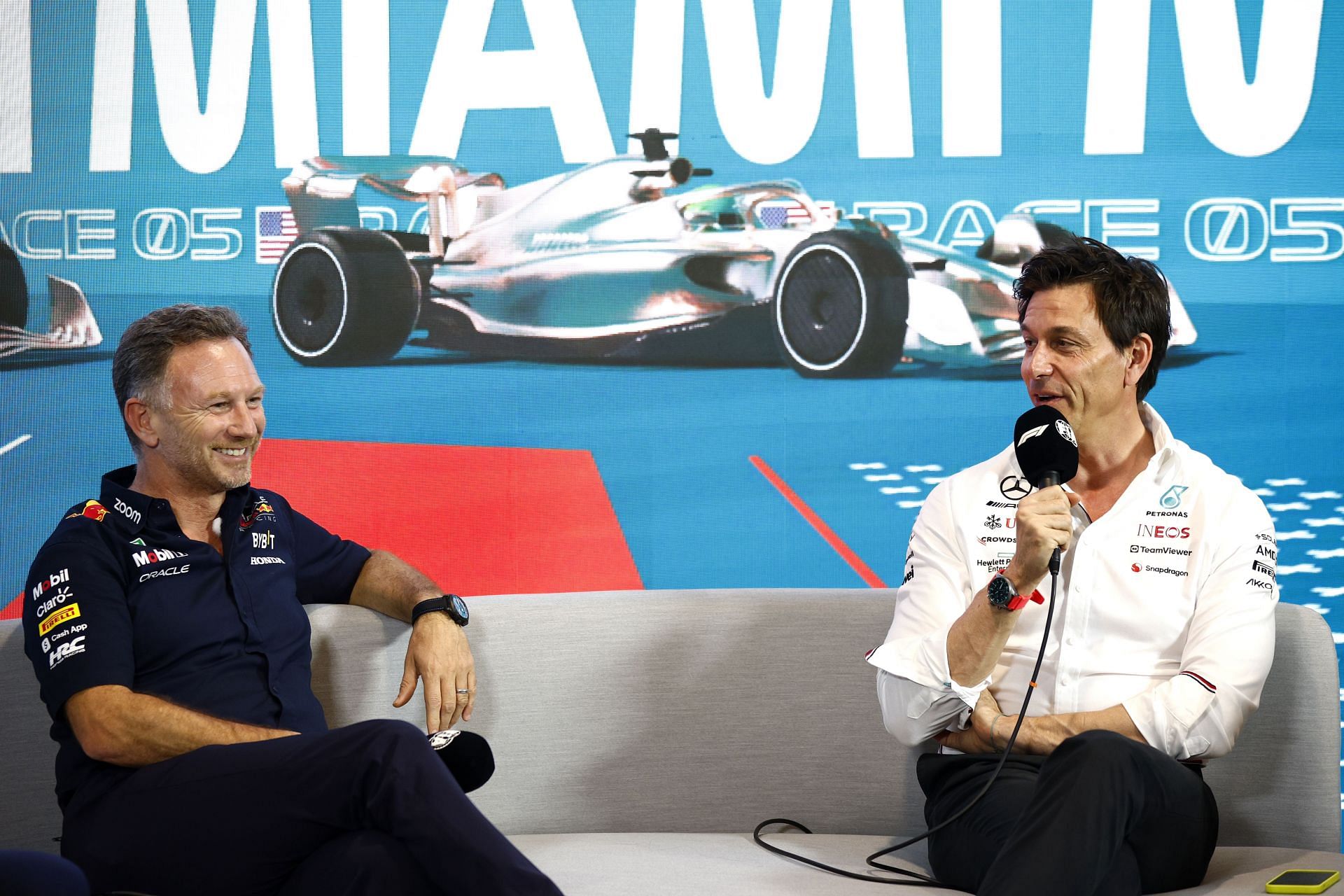
Red Bull and Mercedes bosses clash once again as F1's future hangs in the balance
Red Bull and Mercedes bosses are once again at odds when talking about the immediate future of F1, as Christian Horner criticizes the minimum weight set for 2026 cars, while Wolff is in agreement with the step that has been made. The 2026 F1 regulations have been under extensive scrutiny this season.
It all began with the FIA proposing a possible delay in the implementation of the regulations and even an introduction of simple V8/V10 power units to the cars in the near future. That proposal was reportedly favored by teams like Red Bull and Ferrari at the time, but Mercedes boss Toto Wolff was vehemently against the idea of doing something at such a late hour.
Ultimately, the proposal fell through, and the focus has now moved to the regulations, where there has been a whopping 76kg weight reduction compared to the last set of regulations. In the current set, we have the minimum weight of F1 cars at 800 kg, and in 2026, it will drop down to 724kg. The move has been made to make the cars more nimble and agile compared to the bulky nature that they have right now.
At the same time, it is counterintuitive because the power units are going to get heavier because the batteries are expected to be responsible for 50% of the output. Talking to the media, including RacingNews365. Red Bull's Christian Horner raised alarm over the weight reduction as he said,
"A number was plucked out of the air for car weight. We've got engines that are significantly heavier and a car weight which has become lower, so it will be an enormous challenge for every team to achieve it. Saving weight costs a colossal amount of money. There was a discussion about introducing steel skid blocks, but maybe that would warrant adding 5 kilos to the minimum weight."
He added,
"But it is what it is, and it is the same for everybody. There will be choices teams make to hit the weight, because weight is free lap time. Every 10 kilos is about 0.35s seconds, but it will be very challenging for all teams to get down to the minimum weight."
Mercedes boss Toto Wolff, however, was not as blunt in his verdict for these regulations, as he felt that the objective of the regulations is to build a car that is more nimble than what we have right now. He said,
"Like Christian said, you make choices as a team. How much lap time do you attribute to weight and ballast? Where do you want to save? You may compromise other performance parts if you want to reduce your weight, or the opposite. It is challenging."
He added,
"The reason we’re doing it is to make the cars more nimble. Is that something that was important? I think it was. We’ve got to start somewhere. That initial step is difficult, but it’s the same for everyone."
Red Bull and Mercedes' counterviews are a reflection of where they are in preparations for 2026
It is slowly becoming more and more clear that the comments from both Red Bull and Mercedes are a sign of where they are when it comes to their preparations for the 2026 F1 regulations. The new power unit seems to be a bone of contention for Horner, while Wolff seems to be in favor of it.
At the same time, it all trickles down from the power unit because if Red Bull thinks that it is not in a position to compete with Mercedes on that front, then it could possibly be conceding something that it cannot make up on the chassis side. A heavy car has always been a concern, and that weight is often free lap time that a team could gain or lose depending on where they are on the scale.
With all that has been said, however, until now it does appear that Red Bull is maybe not in the best position for 2026, while Mercedes has a few things up its sleeve with which it can cause rivals a lot of headache.